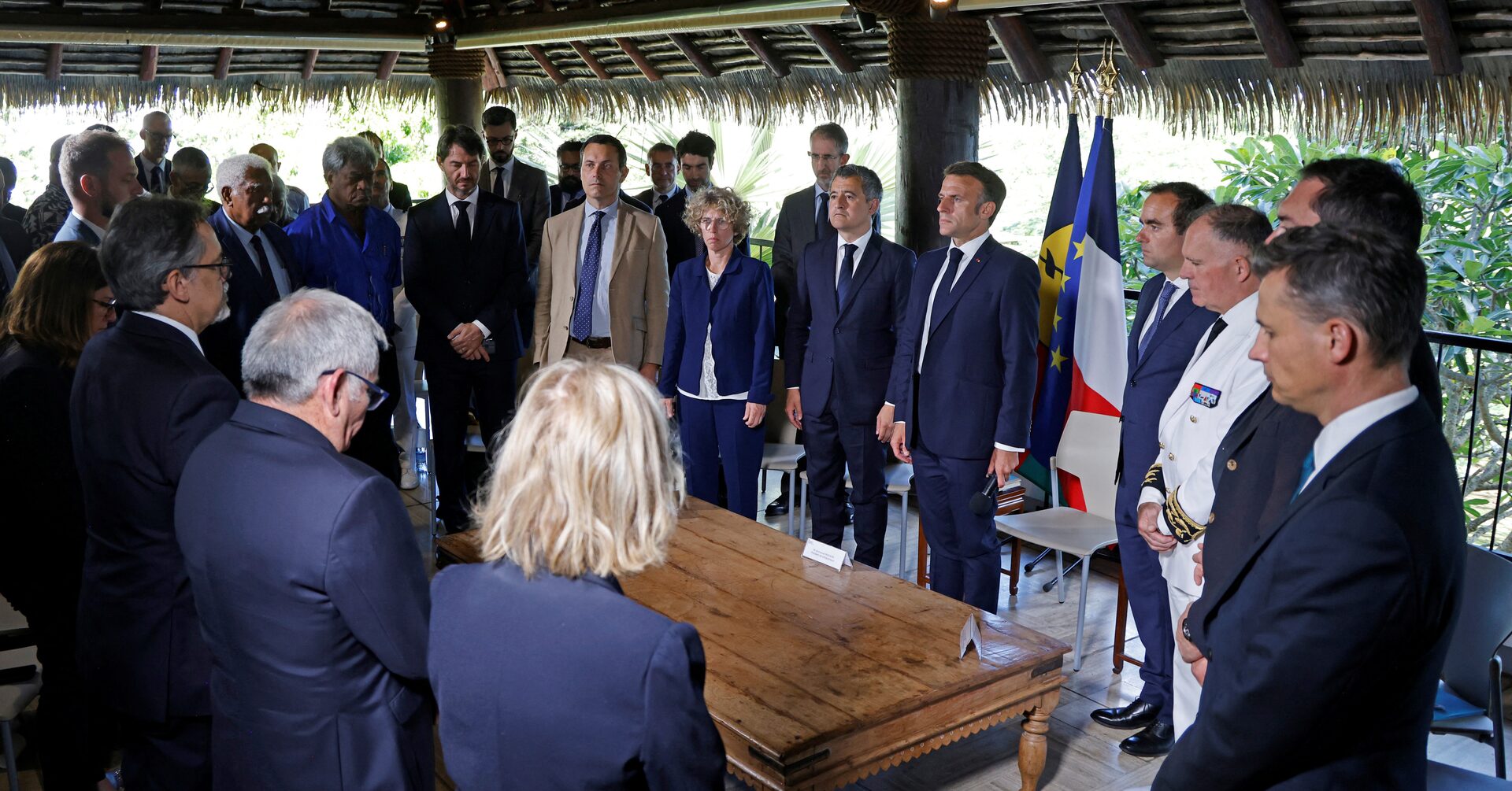Emmanuel Macron has announced the suspension of controversial voting reforms in New Caledonia following a period of deadly unrest in the French Pacific territory.
The proposed reforms, which aimed to alter voting rights, faced strong opposition from the Indigenous Kanak people, who feared that the changes would lead to further marginalization.
On Wednesday, Macron declared, “The constitutional bill regarding New Caledonia … I have decided to suspend.”
Macron had visited New Caledonia in May amidst escalating anger over the electoral reforms. The unrest, which included arson and looting, resulted in nine deaths, marking the most severe violence on the archipelago in decades.
After spending 18 hours on the ground, Macron had pledged that the reforms would not be enforced by force and promised a review of the situation within a month.
It now appears that Macron has made a decisive move to halt the reforms. “We cannot leave ambiguity during this period. It must be suspended to give full strength to dialogue on the ground and the return to order,” he stated.
Although the reform had been approved by both the National Assembly and the Senate, it still required ratification by a constitutional congress of both houses to become law.
However, with the National Assembly dissolved due to a snap election called by Macron, the congress could not be held by the deadline of June 30, the day voters are set to go to the polls for the first round of the election.
Pro-independence groups had already considered the voting reform nullified due to the snap election, which followed the defeat of Macron’s allies by the far right in the European elections.

Before Macron’s announcement, the Kanak Liberation Party (Palika) had declared, “We can all agree that the European elections saw off the constitutional bill. This should be a time for rebuilding peace and social ties.”
The unrest in New Caledonia began on May 13 in response to Macron’s government attempts to amend the French constitution and alter the voting lists in the territory.
The proposed changes would have extended voting rights to tens of thousands of non-Indigenous residents, potentially diluting the Kanak vote and undermining efforts for independence.
During the violence, barricades were erected by both sides: Indigenous Kanaks seeking independence and those loyal to France. Some barricades were set up in protest, while others were used to protect homes and properties.
Parts of the capital, Nouméa, became no-go zones, and the international airport was closed to commercial flights, leading to repatriation flights for stranded tourists.
France declared a state of emergency on May 15 and deployed additional troops to assist police in controlling the unrest.
On Wednesday, the French justice ministry confirmed the death of a 34-year-old man who had been injured in a confrontation with police on May 29. An autopsy has been ordered, and an investigation into the use of force by the gendarme involved is ongoing.
Louis Mapou, president of New Caledonia’s government, extended his condolences and called for a return to peace. “I urge the immediate removal of barricades and a return to peace,” Mapou said.
The French government has extended the overnight curfew across the archipelago until June 17.


